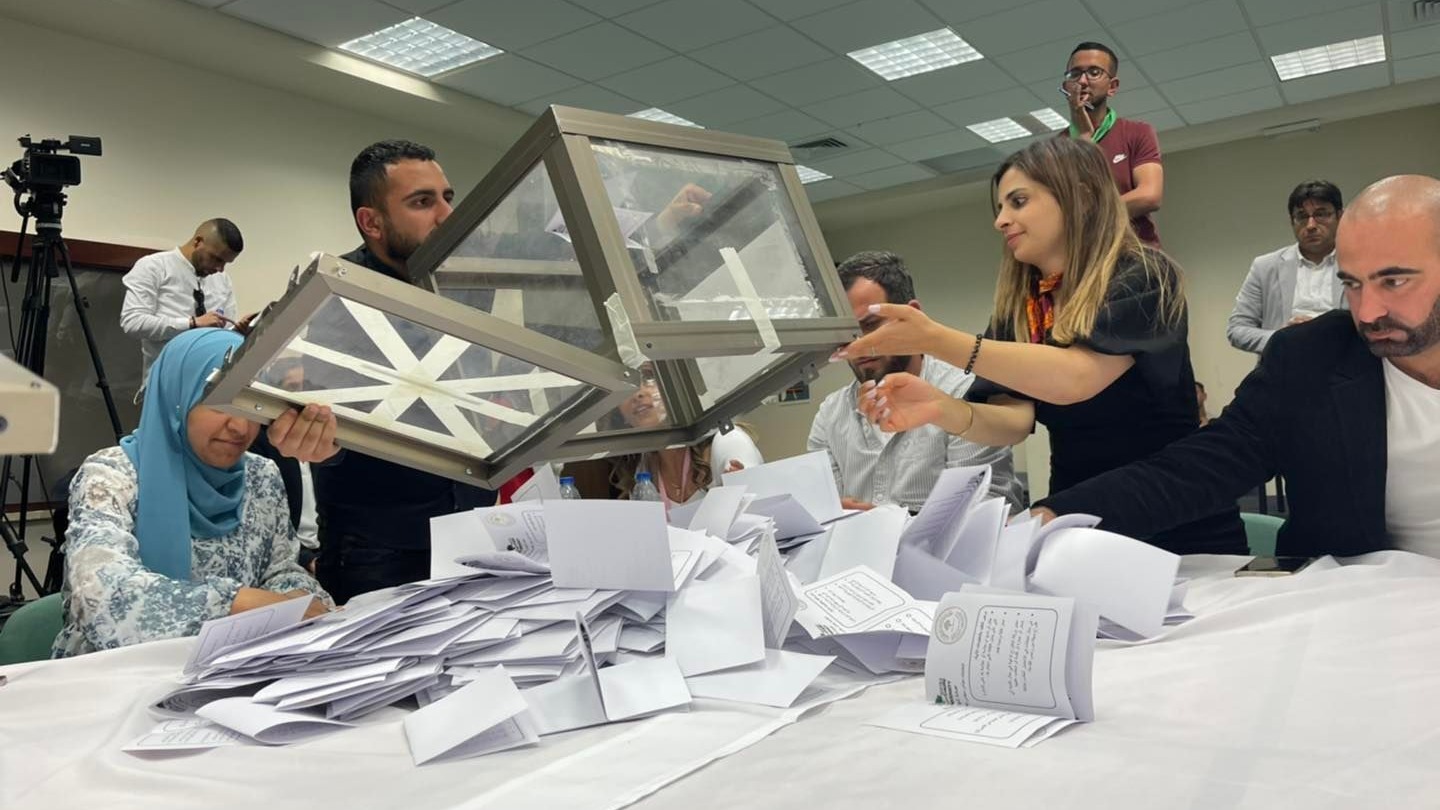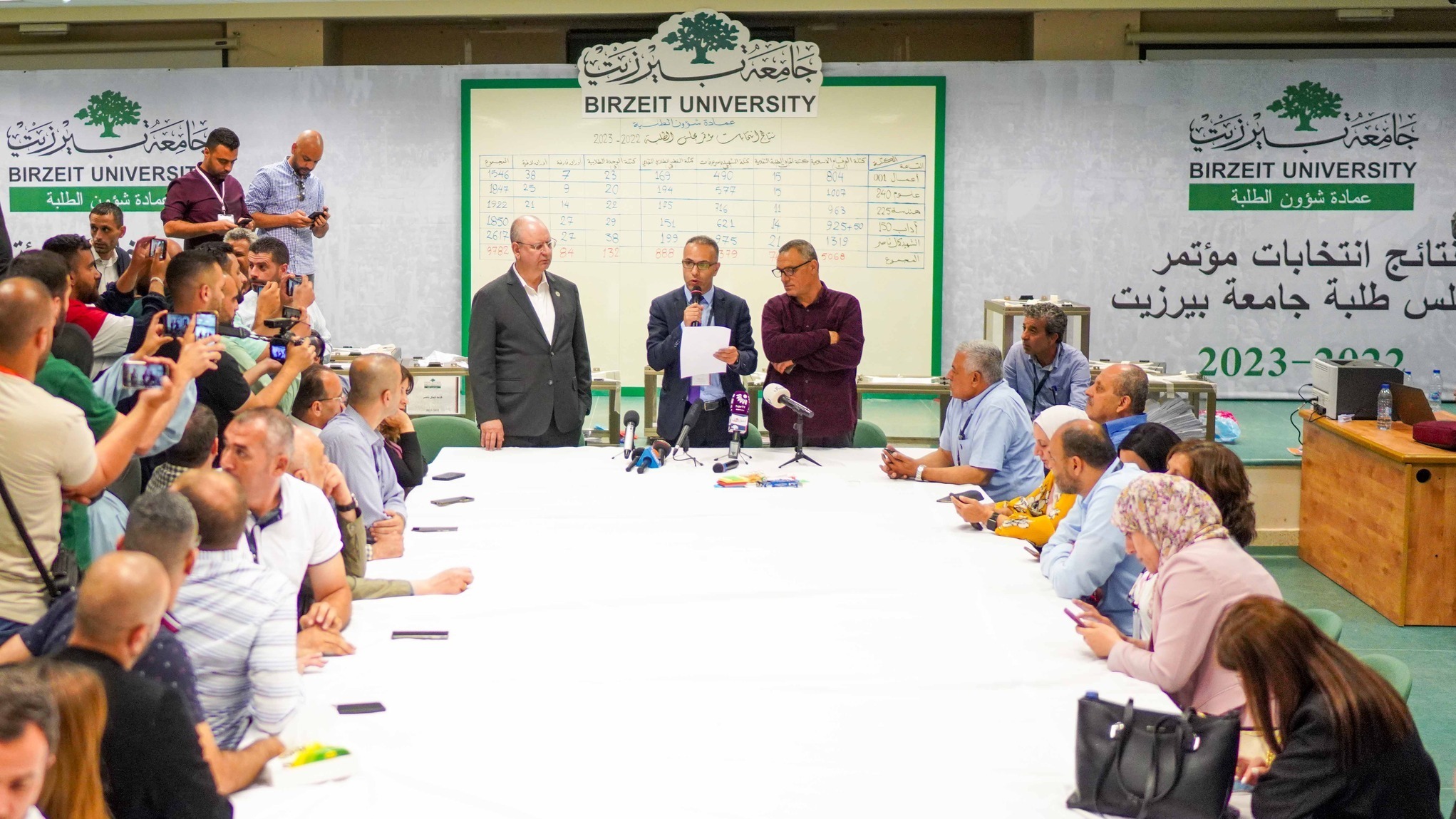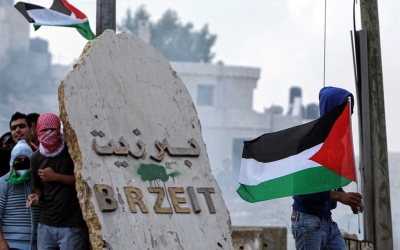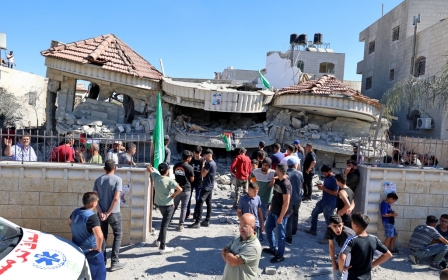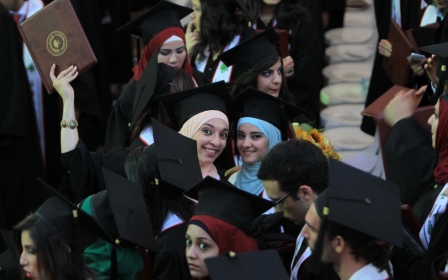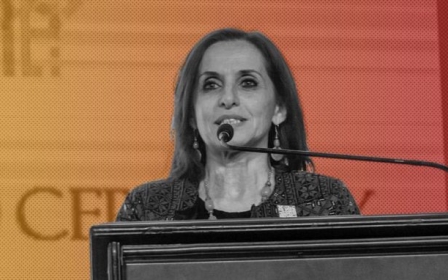Hamas-linked student bloc wins West Bank university election by landslide
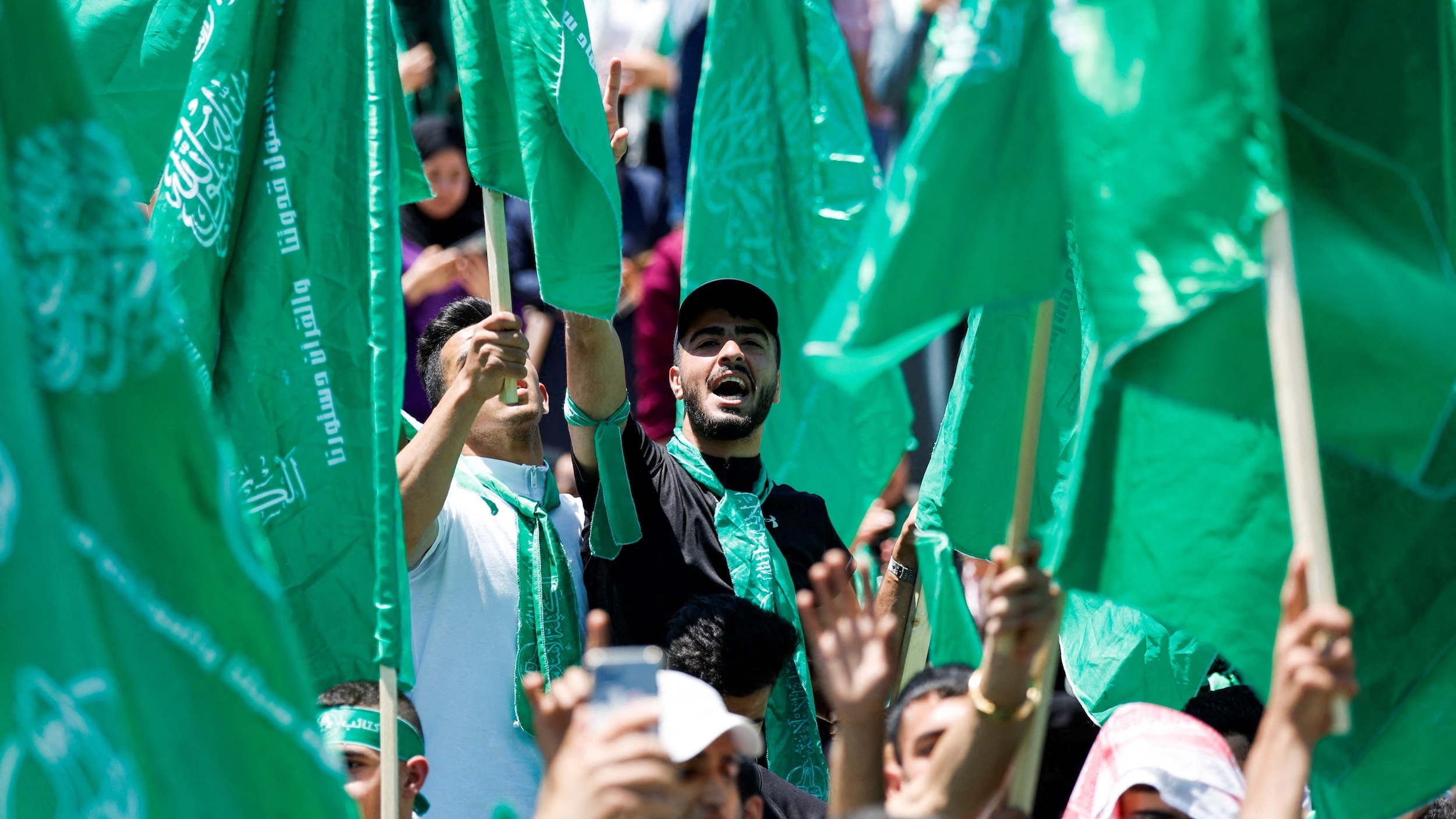
A Hamas-affiliated bloc has won student elections at a leading West Bank university despite arrests and threatening text messages by the Israeli army ahead of the vote.
The Islamic Wafa bloc scored a landslide victory with 5068 votes in Ramallah's Birzeit University's elections on Wednesday, winning 28 seats of 51 available.
'The message that we wanted to convey to the occupation army today, by continuing the election process, is that its repression of students will not pass and will not succeed'
- Iyad Tomar, Dean of Student Affairs, Birzeit University
It was followed by the "Shabiba" bloc - the student arm of the Palestinian ruling party Fatah - which received 3379 votes and secured 18 seats. Fatah used to dominate student councils in the West Bank.
In the last Birzeit election held in 2019, the Wafa and Shabiba blocs scored 23 seats each.
Democratic Progressive Student Pole came out third, obtaining five seats with a total of 888 votes, while the Progressive Student Union bloc and the Student Union List did not get any seats.
New MEE newsletter: Jerusalem Dispatch
Sign up to get the latest insights and analysis on Israel-Palestine, alongside Turkey Unpacked and other MEE newsletters
The Birzeit University elections are considered as the bellwether of West Bank politics. It's one of the most important political events in Palestinian society, especially since the university is one of the largest education institutions in the West Bank and maintains its independence from the control of the Palestinian Authority.
The results of these elections are read as a reflection of wider Palestinian society, its position on the PA, and voters' orientations in any broader elections that may be held in the future.
Chairman of the Preparatory Committee for Elections and dean of student affairs, Iyad Tomar, said the turnout reached 78.1 percent, with 9,782 out of 12,521 students eligible to vote casting their ballots.
After the results were announced, eyewitnesses said Israeli security services quickly blocked the entrances to the city of Ramallah, and prevented students from reaching the city centre to celebrate the elections outcome.
They also prevented students from raising the flags of Hamas - which governs Gaza, and forming a car rally, as the students have done in the past.
Hamas praised the results as "a rejection of normalisation" and "security coordination," in a reference to the Fatah-led Palestinian Authority's ties with Israel.
Dr Fathi Hammad, a member of the group's political bureau, said "the student movement has proven that (the youth) is the fuel to the revolution."
Arrests and threats
On Tuesday evening, Israeli special forces arrested seven Birzeit University students while they were in a popular park in the village of Dura Al-Qara, northeast of Ramallah.
The seven students all belonged to the Islamic bloc at Birzeit University, the student arm of Hamas.
The arrest of the students by the army came a few hours after a student debate was held at the university, and one day before the elections at Birzeit University, the first held after two years of disruption due to precautionary measures related to the coronavirus pandemic.
According to an eyewitness, a group of about 10 plainclothes men entered the park and began attacking and arresting the young men. Minutes later, soldiers in military uniform joined in and completed the operation.
The eyewitness said the Israeli officers beat the students, tied them up, covered their eyes, and subjected them to field investigations.
Tasneem Hassan, sister of 21-year-old Abdul Majeed Hassan, told MEE that her family began calling him after seeing on social media the arrest of Birzeit University students. However he did not answer his phone, and about an hour later, eyewitnesses confirmed that Hassan was among the seven students arrested by the army.
About two months ago, Abdul Majeed was released from Israeli prison following a year-long detention. This was the third arrest that Abdul Majeed has been subjected to since he began studying at Birzeit University, making him lag behind his peers in his studies, his family said.
"The arrest of Abdul Majeed is because of his union work at Birzeit University and his affiliation with the Islamic bloc... We expected that the occupation would re-arrest him, but we did not expect it that quickly,” Tasneem said.
The families of the arrested students expressed deep concerns over the welfare of their sons, especially after hearing eyewitness accounts that they had been assaulted and beaten during the process.
Tasnim said her family did not learn about the location of Abdul Majeed’s arrest until the following afternoon, and the family accused the army of hiding their son and the other students for long hours before revealing their fate.
The students were being held in Ofer Prison and would be brought before the Israeli military court on Thursday morning, the families learned.
Intimidation tactics
Prior to the elections, threatening messages had also been sent out to several other Birzeit University students and their families, warning them against participating in polls and claiming the measure violated Israeli law.
The messages also contained a threat against voting for the Islamic bloc, according to social media posts.
The dean of student affairs at Birzeit University said he was keen on the continuation of the electoral process and accused the occupation army of interfering in the elections.
Tomar told MEE that Birzeit University rejects and condemns the arrest of the seven students, and stressed that the detentions are an attempt by the army to obstruct the elections and put pressure on the university’s students.
The university's lawyer has been trying to follow up on the students’ condition since their arrest, however there’s been a great deal of obstruction, leaving the students’ fate in the dark, according to Tomar.
He said he was not surprised by the latest arrest, as the Israeli army had escalated its attacks on Birzeit University students through arrests and summons, especially around the time of political events such as elections.
However, despite the Israeli army's attempts to obstruct the elections, the university insisted that the elections had proceeded as planned. The polls opened at 8am in the morning and remained open until 4.30pm before the votes were counted.
Bellwether of West Bank politics
The elections are an important part of the political practice of Palestinian students, said Tomar.
"The message that we wanted to convey to the occupation army today, by continuing the election process, is that its repression of students will not pass and will not succeed.”
With no general elections on the horizon in Palestine, some saw the campus vote as "a test for measuring public opinion", said Birzeit's vice president, Ghassan al-Khatib.
One analyst said the Birzeit polls were perceived as a type of bellwether because the make-up of the student body was "seen as more representative of Palestinian society".
"The fact that you have a democratic mechanism and the voter pool is seen to be representative of Palestinian dynamics - that's why it matters," Hugh Lovatt, senior policy fellow at the European Council on Foreign Relations, told AFP.
The general Palestinian population has not been to the polls since 2006.
Palestinian President Mahmoud Abbas scrapped elections scheduled for last year citing Israel's refusal to allow voting in Israeli-annexed east Jerusalem, which Palestinians claim as their capital.
But Palestinian analysts said Abbas baulked out of fear that Hamas, which controls the Gaza Strip, would also trounce Fatah across the West Bank.
Middle East Eye delivers independent and unrivalled coverage and analysis of the Middle East, North Africa and beyond. To learn more about republishing this content and the associated fees, please fill out this form. More about MEE can be found here.


